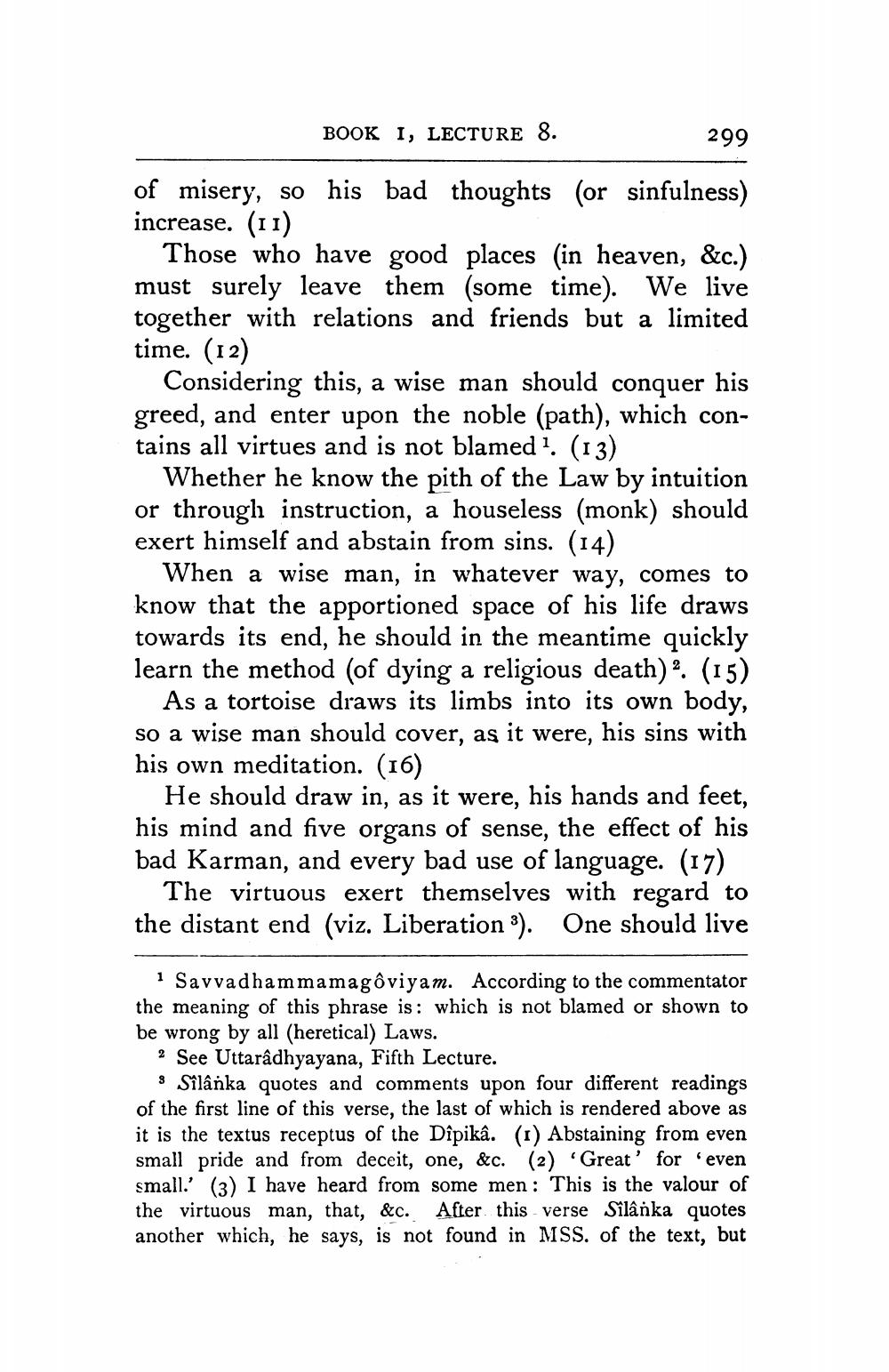________________
BOOK 1, LECTURE 8.
299
of misery, so his bad thoughts (or sinfulness) increase. (11)
Those who have good places in heaven, &c.) must surely leave them (some time). We live together with relations and friends but a limited time. (12)
Considering this, a wise man should conquer his greed, and enter upon the noble (path), which contains all virtues and is not blamed 1. (13)
Whether he know the pith of the Law by intuition or through instruction, a houseless (monk) should exert himself and abstain from sins. (14)
When a wise man, in whatever way, comes to know that the apportioned space of his life draws towards its end, he should in the meantime quickly learn the method (of dying a religious death) 2 (15)
As a tortoise draws its limbs into its own body, so a wise man should cover, as it were, his sins with his own meditation. (16)
He should draw in, as it were, his hands and feet, his mind and five organs of sense, the effect of his bad Karman, and every bad use of language. (17)
The virtuous exert themselves with regard to the distant end (viz. Liberation 3). One should live
Savvadhammamagôviyam. According to the commentator the meaning of this phrase is: which is not blamed or shown to be wrong by all (heretical) Laws.
2 See Uttaradhyayana, Fifth Lecture.
s Silanka quotes and comments upon four different readings of the first line of this verse, the last of which is rendered above as it is the textus receptus of the Dîpikâ. (1) Abstaining from even small pride and from deceit, one, &c. (2) 'Great for even small.' (3) I have heard from some men : This is the valour of the virtuous man, that, &c. After this verse Silânka quotes another which, he says, is not found in MSS. of the text, but




